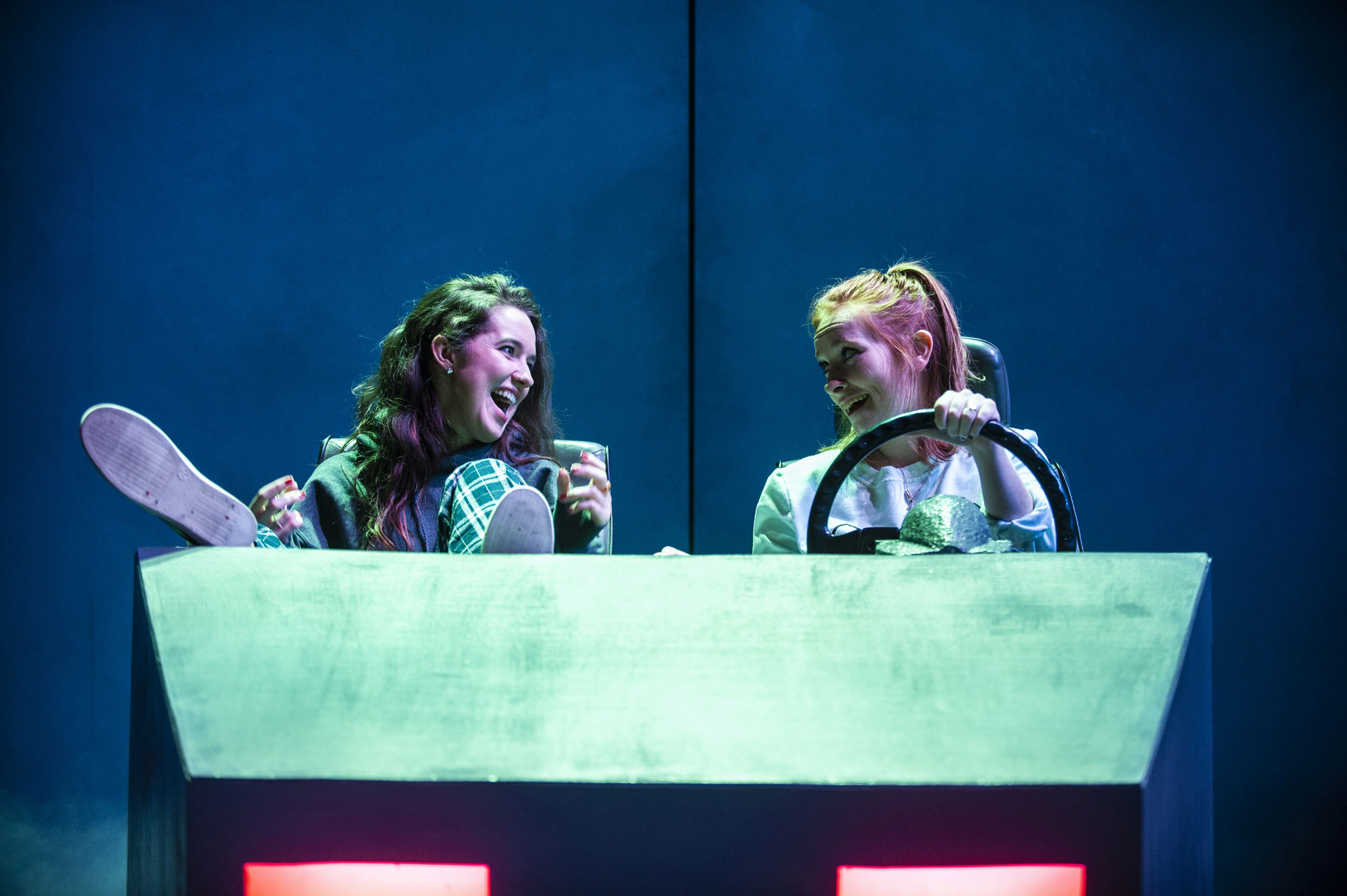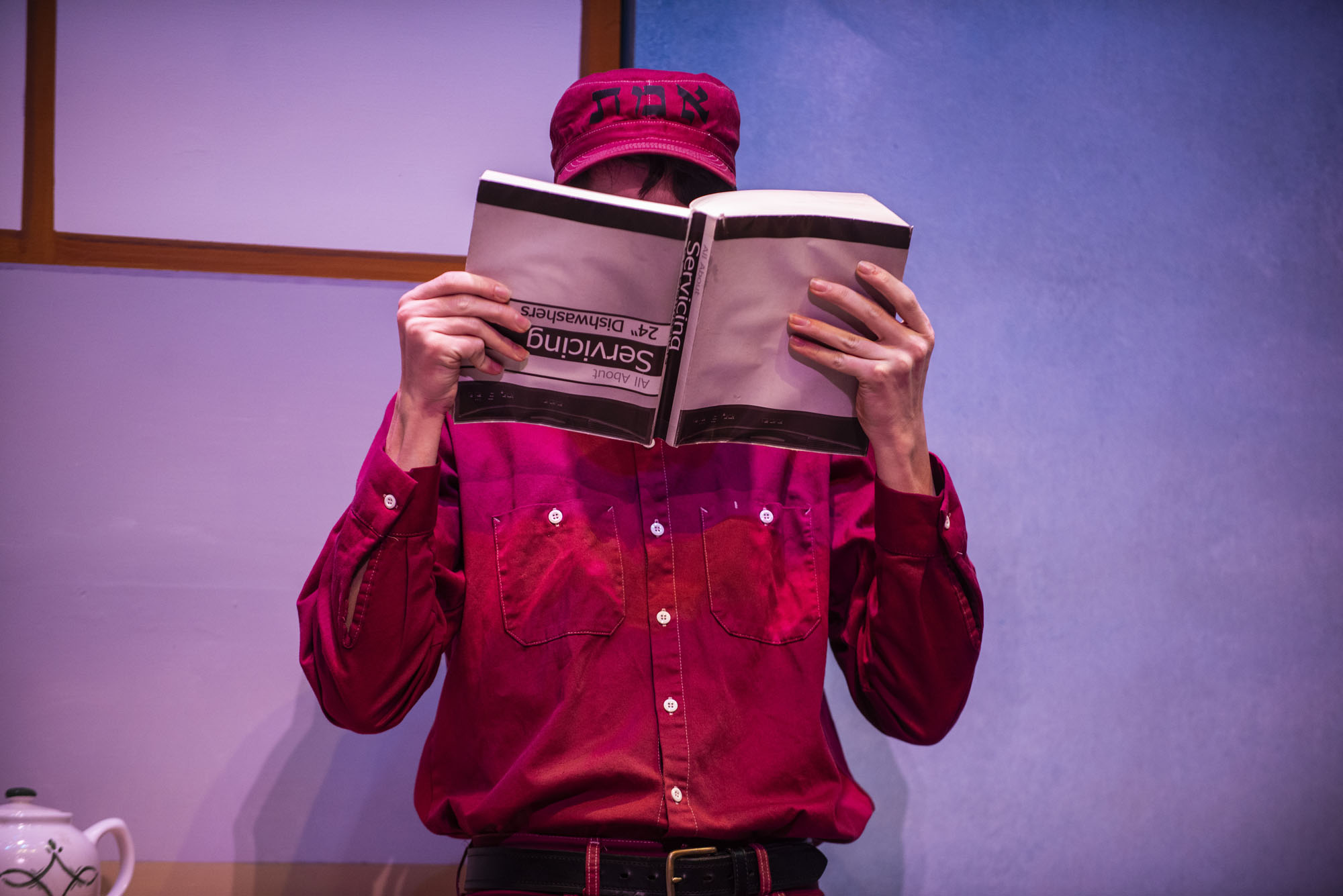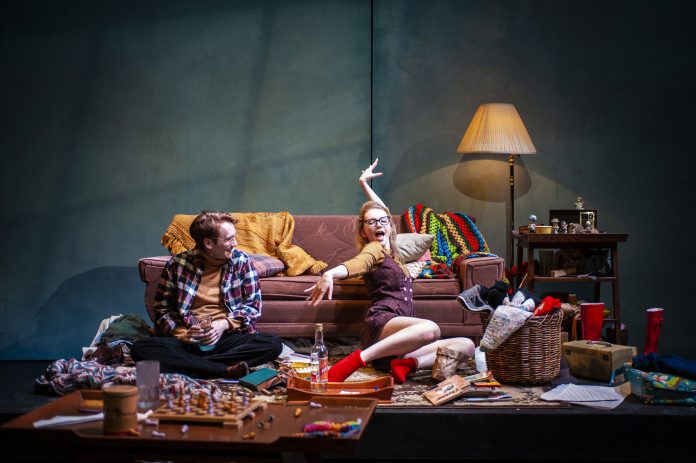Muhlenberg’s Studio Theatre was the home of the three plays that were a part of New Voices/New Visions this past weekend. The three plays, Am I Blue, Still Growing Up and The Repair Man, were all student-directed, and two of the plays were written by Muhlenberg students. Still Growing Up was written by Camille Seidel ’18, and Sarah Jae Leiber ’19 wrote The Repair Man.
Each of the three plays presented during the New Voices/New Visions festival presented moving and unique messages, emphasizing how important the stories that the plays told were to those who worked on them. Abigail Martz ’19, director of Am I Blue, explained that she chose to direct that play because she believes that “oftentimes, female voices are not presented as often as they should be in theater, and I knew that I wanted to present a piece of theater that accentuated the lived experience of a woman.” In the case of Am I Blue, this was done through the fascinating character of Ashbe. Similarly, Eliana Roseen ’19, who played Jemma in Still Growing Up, expressed that the importance of the play was that “we brush women’s rights under the rug, and it’s something we feel uncomfortable talking about all the time,” but Still Growing Up is “a great way to start a conversation.” The Repair Man playwright, Leiber, explained that she wrote the play because she “wanted to write something that put Yom Kippur, hunger, honesty and depression in conversation with each other,” and she ended up basing the finalized play on a personal experience she had while studying abroad.
One particularly interesting aspect of the production was how the set was used to transition between the shows. A tall blue wall stood as the background to the first play of the evening, Still Growing Up, with the car set piece being the only other part of the set for that play. To transition between plays, the blue wall had been cleverly designed so that its main section could separate and allow the subsequent set to be moved forward by the stage crew. This design allowed the switching from one play to the next to be quick and seamless, and this method helped to keep the audience engaged for each play.
Jenna Adamek ’19 did an amazing job directing Still Growing Up, making even a simple play in terms of set full in the way that she staged it. The relationship between Lauren and Jemma was portrayed realistically by Ashley Campbell ’19 and Roseen respectively, making the audience sympathize with both characters. Much of the honesty in Campbell and Roseen’s performances could be found in the honesty within the characters themselves. As Roseen explained, “When you look at Jemma, you immediately want to snap and judge her … but it made me realize that as an actor … I have to understand why she says those things, why she’s lashing out and why she does it, and that brings more human qualities to her.” In addition to masterfully creating such genuine characters, Seidel’s script tackled the heavy topic of abortion in a thoughtful, clever way that never explicitly stated the issue but still made a powerful point on the subject.

The Repair Man, directed by Anna Ricciuti ’19, blended comedy with the more serious elements of the play seamlessly. Ricciuti did a fantastic job directing the play, and Leiber, who directed the play when it was a Quickie and part of the Red Door Play Festival, explained, “[I’m] glad I didn’t direct the mainstage, firstly because Anna is so wonderful and talented, but also because it gave me a chance to step back creatively from the thing I’d written and let someone else go through the trouble of making it work onstage.” Joseph Turner ’21 gave a performance as the titular character that was hilarious and endearing, and Emily Casey ’19 was moving as Nick, helping the audience to understand the reality of mental illness while still adding a layer of humor to the play. The banter between Turner and Casey was extremely entertaining, lightening the mood even when the play became more serious.

The third play of the evening, Am I Blue by Beth Henley, was excellently directed by Martz; her staging of the play helping to move the story forward effectively. Amanda Clark ’22 was charming as the quirky Ashbe, and she created a compelling relationship with Owen Yingling ‘21’s John Polk. Both characters were flawed but human, and Clark and Yingling did a fantastic job of capturing all of the complex layers of their roles. Lots of this was due to work the two of them did with Martz in rehearsals, who explained that “throughout the beginning of our rehearsal process we focused a lot on building their onstage relationship through trust and focus exercises.” This work clearly paid off, as much of the charm of the show was in the relationship that Clark and Yingling created. The play is full of absurdities that could have fallen flat, but Clark and Yingling made them all realistic within their characters.
All three plays presented in the New Voices/New Visions festival were phenomenally executed, creating thought-provoking and moving performances that audiences certainly enjoyed.






















